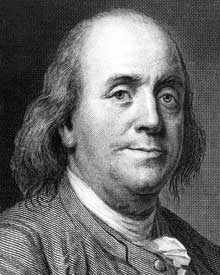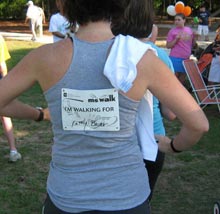 No less of a profound thinker than Ralph Waldo Emerson once observed that “A foolish consistency is the hobgoblin of little minds, adored by little statesmen and philosophers and divines.” And who am I to argue with Ralph, especially since he’s been gone since 1882? Besides, the essay in which this quote appears is “Self-Reliance,” in itself an enduring American value.
No less of a profound thinker than Ralph Waldo Emerson once observed that “A foolish consistency is the hobgoblin of little minds, adored by little statesmen and philosophers and divines.” And who am I to argue with Ralph, especially since he’s been gone since 1882? Besides, the essay in which this quote appears is “Self-Reliance,” in itself an enduring American value.
So it’s in this Emersonian spirit that I’ve come to reconsider a few of my own long held beliefs and views. It’s something like doing spring cleaning in your mind but without all the chemicals, rags and dust. I’m happy to describe the following changes of heart.
Benjamin Franklin as the greatest American. Like everyone else’s teachers, mine taught us proudly about the Founding Fathers. Washington, Jefferson, Adams, Hancock, Franklin and company. I read an inspiring biography about George Washington recently that could serve to make all of us even more proud of this brilliant, strong and steadfast general, patriot and visionary. To this list I have to add Abraham Lincoln and FDR, the two presidents most often cited by historians and political scientists as the greatest we ever had.
This view shifted with my recent reading of “Benjamin Franklin: An American Life” (Simon & Schuster, 2004), written by one of the finest biographers on the planet, Walter Isaacson. My impression of Mr. Franklin had been that of “just” another key patriot, creator of pithy sayings, printer, postmaster and tinkerer. The fellow with the kindly face who adorns the hundred dollar bill. I now see him, described by Isaacson as “the most influential in inventing the type of society America would become,” as a towering voice of courage, reason, and national independence; a great scientist, the most successful diplomat America ever had, perhaps our most versatile writer. And, as a special bonus, one of the most humorous Americans ever. As in right up there with Mark Twain, Will Rogers, Bob Hope and Robin Williams. Franklin left a trail of publications (“Poor Richard’s Almanac” anyone?) and inventions (such as bifocals and lightning rods) that leaves one dizzy with admiration.
And gratitude. Thanks, Ben, for advising us that “Democracy is two wolves and a lamb voting on what to have for lunch. Liberty is a well-armed lamb contesting the vote.” Plus, “The Constitution only gives people the right to pursue happiness. You have to catch it yourself.” And thank you Walter, for persuading me that Mount Rushmore is really one gently smiling face short of a complete portrait.
iPhones are up there with sliced bread after all. Steve Jobs was a genius according to popular legend and just about any criteria that might be applied to a business person or entrepreneur. His groundbreaking company, Apple, has sold well over 100 million iPhones worldwide. These phones of course serve not only as advanced computers but as cameras and a, often the primary source of information and everyday communication. The range and utility of the available apps is nearly beyond one’s imagination.
So what am I doing with a 15 year old flip phone that has trouble finding a signal or even holding a charge? Pulling this relic out of my pocket feels like hitching up a horse and buggy for a trip to the county fair or dusting off a bowler hat. Maybe, just maybe, I have fallen behind the times and need an upgrade. Now if I can just find a twelve year old to help get me started…
Good grief, there really is a superb competitive cooking show on TV. I doubt I’m alone in getting fatigued with many cooking shows. “Hell’s Kitchen” seems particularly distasteful but there are plenty more that feature combative, arrogant contestants and cranky, even rude judges. Then, lo and behold, we have a BBC2 program, “MasterChef: The Professionals.” The challengers are talented men and women from throughout the United Kingdom, some as young as 20 (gasp). They are not only modest and polite but often help each other and it’s nice to see them joyfully shaking hands or even hugging.
The judges are marvelous, starting with Michel Roux, Jr., a two-star Michelin chef who presides over London’s Le Gavroche restaurant. Mr. Roux is highly demanding, yes, but fair, supportive and instructive. When he really likes a dish his face simply lights up with a smile as broad as the English Channel and as warm as a chocolate soufflé. Much the same can be said for the other judges, including his long-time sous-chef Monica Galetti and food critic Greg Wallace. They are a delight to watch and some of the winners are spectacular. I’m even learning some new phrases from the judges, such as “the presentation is tidy,” “bang on,” “bags of flavor,” and “that’s just lovely, mate!”
Geography can be rewarding, and not just so you can play Jeopardy better. Reading extensively about WWII lately has frequently sent me scurrying for a map. Guadalcanal, the Gilbert and Marshall Islands, Dunkirk, Wake Island, Okinawa, New Zealand, Rangoon, Stuttgart, Essen, Marrakesh. Same issue with some of those international house hunting shows. Our old atlas, weighing a ton with tiny print, was published so long ago that much of the world has changed. As in, where the heck is Myanmar? Or Taiwan?
Not to worry. Even though I was never taught geography, along comes “Merriam-Webster’s Student Atlas.” Right smack on the cover it assures me that it’s a “colorful, engaging world atlas for grades 5-8.” Perfect. Lots of bright graphics, information, key statistics—the works. And it’s so straightforwardly organized that yes a child can navigate through it easily. Or me. This perky book of charts and maps has everything a person could possibly want to cram into their heads. Annual precipitation, vegetation, populations, GDP figures, you name it. So where was this sort of book when I was growing up?
Facebook isn’t mostly frivolous. I may have saved the best for last here. Despite having a graduate degree in social psychology and presumably having at least average sensitivity to interpersonal dynamics, Facebook was never my cup of tea. It struck me as a time wasting platform for exchanging personal trivia.
Not anymore. Last month, a friend from college tracked me down using Facebook after a 40 year lapse in our correspondence. (Thanks, Andie!) What a terrific surprise. We have greatly enjoyed exchanging e-mails and I see that she has an interesting Facebook page. Similarly, another friend from college, Mark, uses his page to pose provocative questions (e.g., who were the three greatest male rock singers of all time) or post political observations. A wonderful roundtable discussion usually ensues, with many participants parrying back and forth as more information is brought to the table. Thoughtful, entertaining stuff.
So there we have it. No more hobgoblins in my mind. But we all have to draw the line somewhere and I’m not budging on fake reviews, insurance commercials, radishes, sea urchin, tripe, green olives, fennel, generics and major league salaries. Or on the notion that if old people like me aren’t careful when getting up off the couch they’re liable to hurt themselves. I’ll bet wonderful old Ben talked about all of that somewhere.







